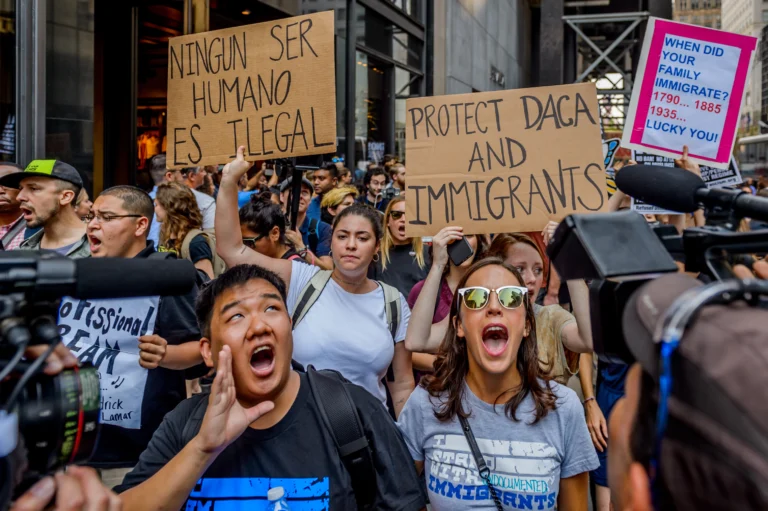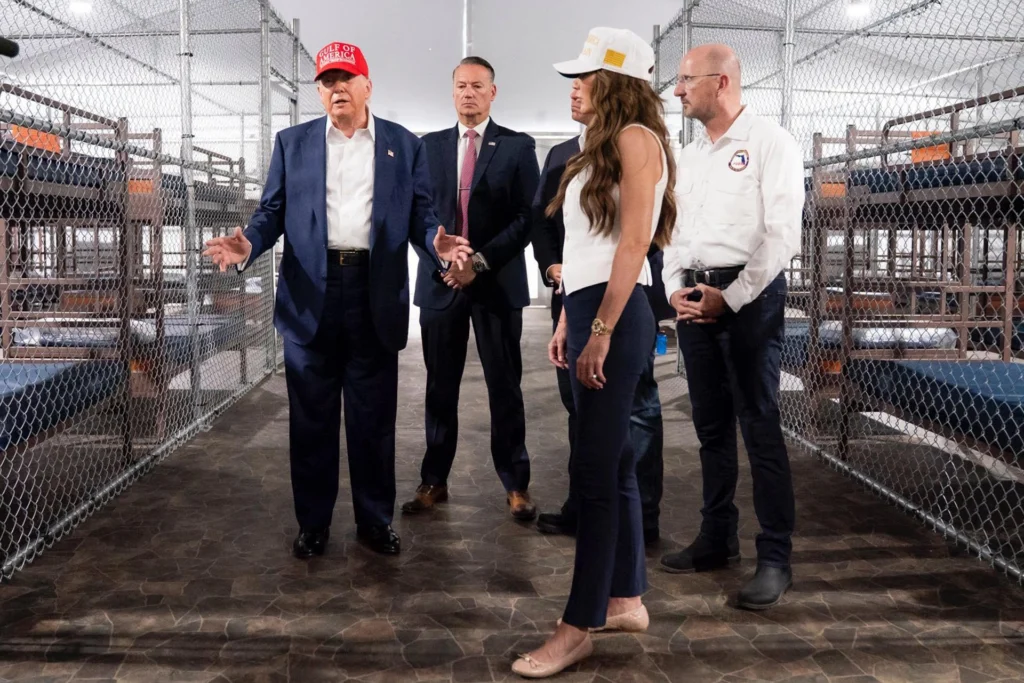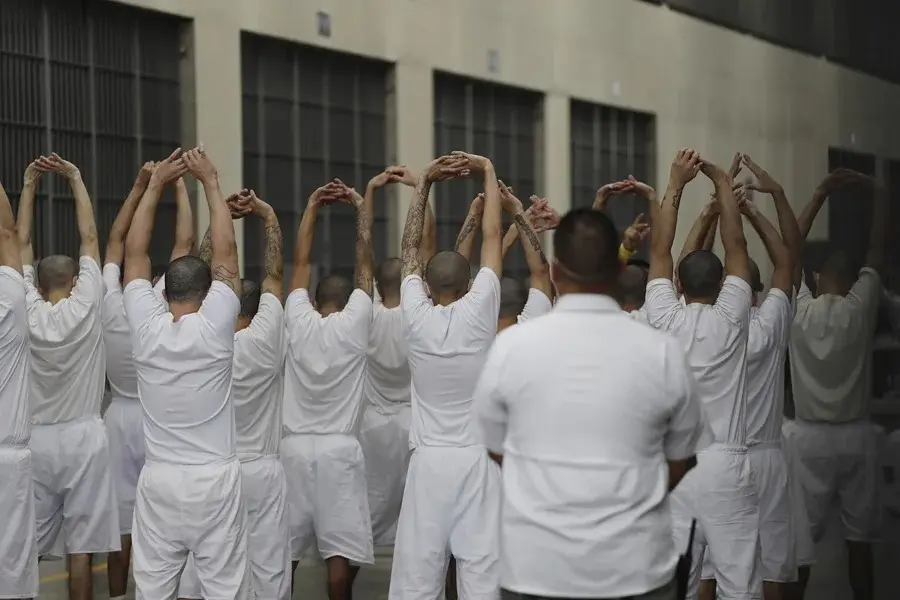Migrants Dignity Crisis: Bishop’s Bold Stand Against U.S. Policies

Photo: Erik McGregor/SIPA USA/PA Images
July 5, 2025 Hour: 1:02 pm
The recent statements from Bishop Mark Joseph Seitz, president of the Commission for the Services to Migrants and Refugees of the United States Conference of Catholic Bishops, have shed light on the pressing issues surrounding migration policies in the United States.
As a leader in the Catholic Church, Seitz, Bishop of El Paso, Texas, has voiced strong concerns over the treatment of migrants, asserting that they are being subjected to indignity and disrespect under the current immigration framework.
Related:
Alligator Alcatraz Takes in Its First Group of Detained Migrants
Systematic Violations of Fundamental Rights
Bishop Seitz’s denunciation of the existing immigration policies comes at a time when the U.S. is witnessing significant shifts in its approach to migrants.
He argues that the current administration’s strategies—particularly under Trump—are leading to systematic violations of fundamental rights that the nation holds dear.
The Bishop noted that these policies often disregard inherent, God-given dignity, crucial for individual and communal well-being.

His statement that “migrants are treated without dignity or respect” encapsulates the troubling reality faced by countless individuals seeking refuge and opportunity in America.
In a broader context, this situation echoes concerns raised by Pope Francis, who previously warned against the massive deportations that undermine human dignity.
The Pope’s advocacy for compassion towards migrants aligns with Bishop Seitz’s emphasis on the necessity of a humane treatment approach within U.S. immigration legislation.
The Chaos of Current Immigration Laws
The Bishop articulated a viewpoint that the current enforcement of immigration laws is chaotic and disorderly, designed seemingly to instill fear among immigrant communities.
This environment of intimidation is exacerbated by mass deportations, which the Bishop describes as a violation of the right to a fair trial and defense against unreasonable searches and seizures.
Such practices don’t just affect the lives of migrants; they create a ripple effect throughout communities, fostering an atmosphere of anxiety and uncertainty.
The implications of this chaotic approach extend beyond mere legal ramifications. It conveys a sense of normalization of dehumanization, where entire ethnic groups are painted with broad strokes as “criminals” or “illegal immigrants.”
This narrative not only strips individuals of their identities but also sets a dangerous precedent in social discourse, further alienating vulnerable populations.
Collective Response from the Catholic Church
In response to the grave concerns raised by Bishop Seitz, the Catholic community in the U.S. has mobilized to advocate for migrant rights.
Coordinated efforts, including peaceful marches, vigils, and public declarations, highlight a collective condemnation of current immigration policies.
On June 14, an estimated 5 million people rallied across American cities, demanding legislative reform.
Moreover, many surveys indicate that a substantial portion of the American populace, regardless of political affiliation, supports creating pathways to permanent legal status for long-term residents—a position historically supported by Catholic bishops.
This growing consensus underscores a potential shift in public perception regarding the treatment of migrants, pointing towards a more compassionate and understanding societal stance.
Impact on Humanitarian Aid Services
The ramifications of stringent immigration policies extend to humanitarian services, significantly affecting agencies dedicated to supporting migrants and refugees.
Funding cuts have dismantled decades-long partnerships between governmental bodies and the Church, resulting in job losses for hundreds involved in humanitarian efforts.
For instance, Catholic Relief Services, an organization vital to assisting vulnerable populations, suffered a staggering loss of one-third of its budget.
In El Paso, Bishop Seitz has taken proactive steps by establishing a fund to assist deported refugees—an acknowledgment that returning individuals face even greater threats and poverty than those that drove them to migrate in the first place.
This initiative demonstrates the Church’s commitment to addressing immediate needs and serving as a sanctuary in times of crisis.
A Call for Compassion
The call to action from Bishop Mark Joseph Seitz serves as a powerful reminder of the need to uphold human dignity and respect for all individuals, irrespective of their immigration status.
His statements resonate with the core tenets of faith that prioritize compassion, understanding, and the inherent value of every person.
Both the Bishop and Pope Francis highlight the importance of protecting migrant rights and affirming their humanity.
As the dialogue around immigration continues, it becomes crucial for policymakers and communities alike to foster environments where migrants can live with respect, safety, and dignity.
Ultimately, the goal remains clear: to create a society that honors the humanity of all its members, allowing them the freedom to work, worship, and thrive in peace.
Author: Manuel F. Diaz
Source: teleSUR - Vatican News


